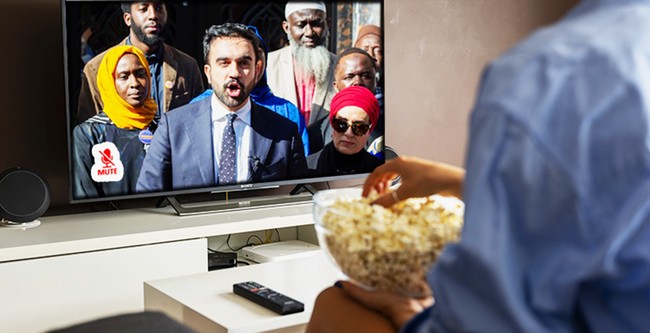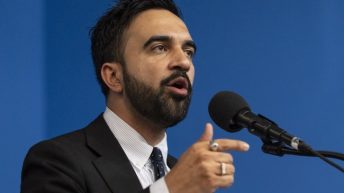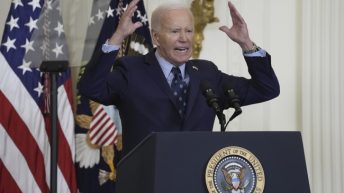I’ll walk through the claim Zohran Mamdani made about his “aunt” and 9/11, explain how reporting and online sleuthing challenged that account, show Mamdani’s follow-up clarification, note his reaction to critics, and point out why this matters for the mayoral race and public trust.
Zohran Mamdani gave a speech about “Islamophobia” in which he said, “I wanted to speak to the memory of my aunt who stopped taking the subway after September 11 because she did not feel safe in her hijab.” That line became a centerpiece of his remarks and was presented as a personal anecdote intended to humanize the issue.
Soon after, reporters and online researchers dug into public records and images and found inconsistencies with the person Mamdani appeared to mean. Those findings included references showing Masuma Mamdani, identified as his only living aunt, was not pictured wearing a head covering in and had a professional history that indicated regular public activity both before and after 2001, including .
Under scrutiny, Mamdani shifted the family designation. He told reporters, “I was speaking about Zehra fuhi, my father’s cousin, who passed away a few years ago,” and explained that “Fuhi means paternal aunt in Urdu and Hindi.” That clarification changes the relationship described and raises questions about why the original wording was framed as an aunt.
Critics pushed back, and Mamdani responded by suggesting those inquiries were motivated by bias. He said, “For the takeaway from my more than 10-minute address about Islamophobia in this race and in this city, to be the question of my aunt, tells you everything you need to know about Cuomo and his inability to reckon with a crisis of his own making.” That is a sharp rebuke aimed at his opponent and at anyone questioning his account.
The way Mamdani framed his retort also relied on naming opponents and implying bad faith motives. That tactic shifts focus from the factual discrepancy to the character of the questioners. It’s a familiar political play: when facts feel inconvenient, wrap the dispute in identity politics and accuse critics of prejudice.
Still, the central issue here is not just a political squabble. A candidate’s credibility matters, especially when they use personal stories to shape public sympathy and policy debates. Voters expecting honesty about personal anecdotes have a right to clarity when a narrative changes under pressure.
Mamdani’s broader public record and associations have also drawn attention. He has publicly questioned Andrew Cuomo about mosque visits while simultaneously defending or associating with controversial figures linked to past extremist incidents, which invites scrutiny when he accuses others of Islamophobia for asking questions about his own claims.
The larger takeaway is about accountability in public life. If a candidate misstates a relationship or timeline, opponents and the public will investigate; that scrutiny is part of democratic oversight. Casting those who check the facts as bigots is a risky strategy that can backfire politically.
For New Yorkers deciding who should lead a city with deep ethnic and religious diversity, trustworthiness is a basic requirement. Personal anecdotes can be powerful, but they rely on being anchored to verifiable truth. When a story shifts, voters deserve a clear, direct explanation without deflection.
“I was speaking about Zehra fuhi, my father’s cousin, who passed away a few years ago,” Mamdani told reporters about the relative, whom he said he affectionately called his aunt.
Fuhi means paternal aunt in Urdu and Hindi.
The controversy illustrates how easily a misstep can dominate a campaign narrative. Questions about who Mamdani meant and why the phrasing changed are legitimate in a mayoral contest where character and judgment matter for public safety and leadership.
At stake is more than a family label. It’s a test of whether candidates will own mistakes and provide straight answers, or whether they will turn honest inquiries into culture war fodder and claim persecution when challenged.





Add comment